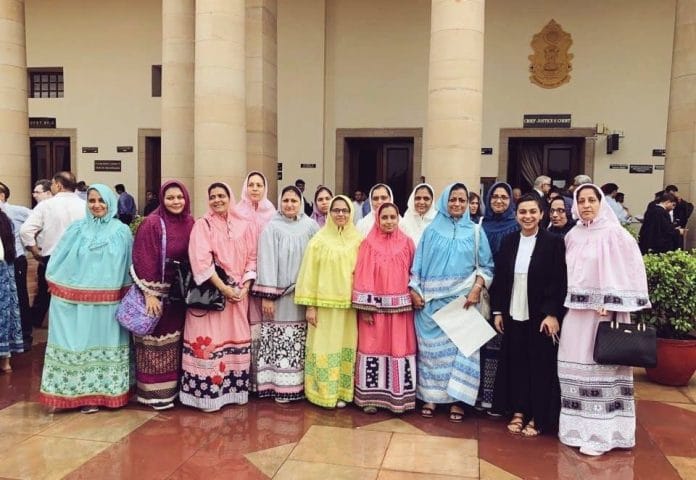The statement comes after an Australian court overturned the conviction of 3 people accused of FGM and ruled ‘khafz’ doesn’t amount to FGM.
Mumbai: An organisation representing women of Dawoodi Bohra Muslim community Saturday defended the practice of female circumcision prevalent in the community saying it does not amount to female genital mutilation (FGM), which needs to be banned.
The organisation issued a statement Saturday in the wake of Court of Criminal Appeal in New South Wales in Australia overturning the conviction of three people accused of FGM. The court ruled that the traditional Dawoodi Bohra practice of ‘khafz’ (female circumcision) does not amount to FGM.
Dawoodi Bohra community is a Shia sub-sect of traders hailing predominantly from Gujarat and spread across the world.
The group, Dawoodi Bohra Women’s Association For Religious Freedom (DBWRF), said that khafz was a harmless religious ritual that was being followed for centuries, FGM was unwarranted and it should be abolished.
In a statement issued Saturday, secretary and spokesperson of DBWRF, Samina Kanchwala, said, “Khafz is a completely harmless religious ritual followed for centuries and this historic judgement will be welcomed by Dawoodi Bohras around the world, who are struggling to inform public opinion that is intent on denying women their right to practise their religious observance.”
According to her, khafz was a part of their religious freedom guaranteed by the Constitution and that the procedure does not amount to FGM.
Khafz is a very small procedure and not female genital mutilation, Kanchwala said adding, “But we consider FGM as totally unwarranted and want the end of it.”
“As highly educated and empowered women, we would not indulge in anything that would harm their daughters. Besides, in a democracy everyone deserves their right to practice their religion with freedom,” she said.
Welcoming the Australian court’s judgement, she said, “Appeals bench ruled the trial judge was wrong to direct that Dawoodi Bohras’ practice of khafz was not ritualised or that it involved damaging the clitoris.”
“Among other grounds, the appellants had also argued that a de-minimis cut or nick would not amount to mutilation,” she said.
Quoting the judgement, she further said the court admitted evidence from Professor Grover, a gynaecologist, and Dr Jennifer Smith, a paediatrician and the medical director of the Victorian Forensic Pediatric Medical Service.
“The evidence confirmed that the two girls had not had their clitoris removed or cut and that there was no sign of any scarring or injury,” she said.
A section of Dawoodi Bohra Women have filed a case in the Supreme Court seeking a ban on FGM saying the practice was violation of human rights of children and women.
On 30 July, the Supreme Court questioned the prevalent practice of FGM of minor girls in Dawoodi Bohra community, saying the women cannot be “subjugated” to the level, where they have to “please” their husbands only.
A bench headed by Chief Justice Dipak Misra, which was hearing a plea seeking a ban on the practice, also referred to fundamental rights including Article 15 (prohibition of discrimination on grounds like caste, creed and sex) under the Constitution and said a person has the right to “have control over her body”. – PTI






